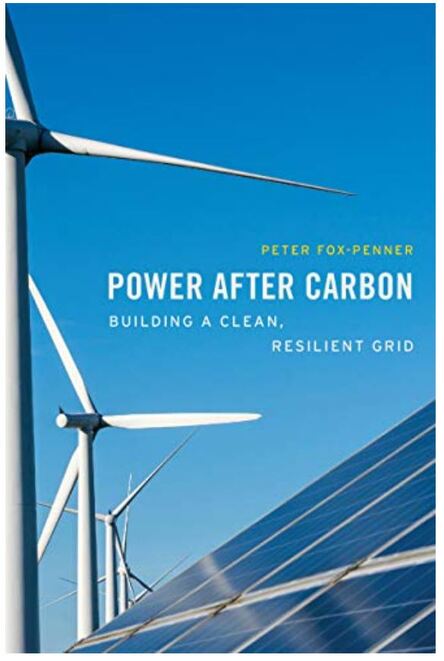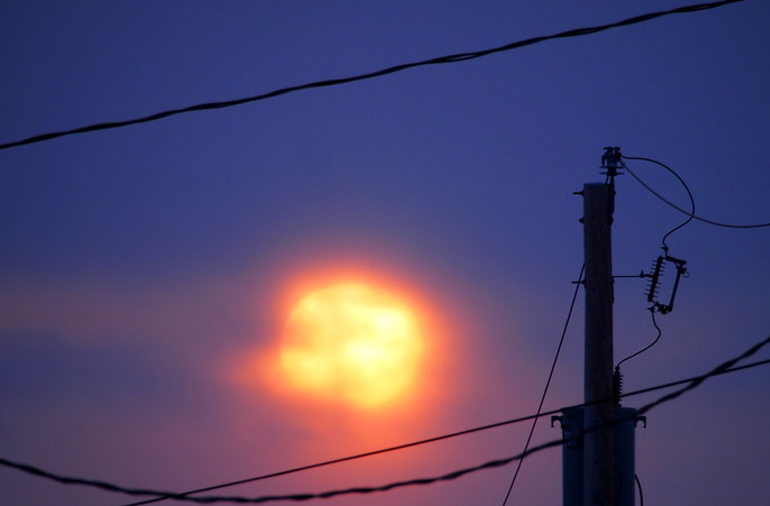 The debate between climate defenders and climate deniers has continued front and center through-out the 2020 election cycle. It contrasts with the pattern of previous years in which voter surveys suggested that climate change was near the top of voter concerns only to fade as election days drew near.
The debate between climate defenders and climate deniers has continued front and center through-out the 2020 election cycle. It contrasts with the pattern of previous years in which voter surveys suggested that climate change was near the top of voter concerns only to fade as election days drew near.
Should Joe Biden become president and the Democrats take both the House and Senate, the climate debate will dramatically change. No longer will federal policymakers spend much time debating and defending climate-science. They will instead exert their energies on answering the problem of what to do about it.
President Trump is right to accuse Biden of listening to scientists and not only when it comes to the novel coronavirus now plaguing the nation. The same charge may be leveled in the way Biden is likely to proceed on climate-related matters. The former vice president has time and again sought the help of scientists.
There is, however, another group of experts who Congress and the White House will need to work with as they draft and enact federal climate legislation to meet the goal of making the US a net-zero emitter of greenhouse gases by 2050. A leading member of that group has written what will undoubtedly become required reading for energy and environment policy makers and activists everywhere.
Power after Carbon by Peter Fox-Penner offers a detailed yet eminently readable discussion of what it will take to get beyond the carbon economy. He asks: how does the power industry decarbonize while still meeting its key performance objectives of universally accessible and affordable, highly reliable and abundant, and secure from physical and cyberattacks?
Fox-Penner does not layout a straight-line that can be taken to decarbonize the economy. He offers something more valuable—guidance through the real-world policymaking maze and insights into the pitfalls and pratfalls that may conspire along the way.
As Alicia Barton writes, what Fox-Penner offers is a detailed look at the technology and policy challenges we will need to confront on the way to a fully clean grid. Moreover, he recognizes that policies—especially of such scope—are not divined either in a vacuum or under controlled laboratory conditions.
Fox-Penner begins the way forward with a review of what has gone before. He is also careful to remind readers that the journey is not only about power generation. It must start with energy efficiency. Between energy efficiency and reaching the objective of zero net GHG emissions from the power sector at the needed pace, i.e., by 2050 or before, a lot can and needs to happen.
Decarbonization of national economies is complicated enough as a matter of technology and infrastructure. Overlay politics and the agendas of various organizations—from political parties to clean energy developers and floundering fossil fuel companies in search of bail-outs—and what’s created is a morass of often conflicting pathways and objectives.
Consider the complexity of moving the US to a zero-net emitter of greenhouse gas (GHG) by 2050 as the difference between a game of checkers and Raumschach chess. Fox-Penner helps the reader play the “power” game by detailing the pieces and discussing the various dimensional moves that policymakers, regulators, utility executives, and the other stakeholders must make to realize a net-zero economy.
Electrification is the common denominator. Power After Carbon takes the reader steps beyond the Deep Decarbonization Pathways Project (DDPP), as well as the Obama administration’s US Mid-Century Strategy (US MCS). Fox-Penner considers the challenge of decarbonization at a more molecular level than either the DDPP or the US MCS. He details price points, reliability, storage, geo-politics, job creation, carbon sequestration, grid size, and other issues within an integrated and actionable context.
Power After Carbon is all the more remarkable for its ability to speak to the issues in a manner accessible to a wide variety of readers. For example, I consider myself a clean-energy and climate generalist. Although I have a working knowledge of power generation and utility markets, my expertise is analyzing, writing, and advocating public policies. As a political actor, my job is to help create the will of voters and policymakers to move the nation onto a sustainable decarbonized pathway.
Power After Carbon is an affirmation of an achievable low-carbon economy by one of the nation’s leading experts in the field. Fox-Penner clearly states there is enough technical and policy potential to eliminate long-term electricity growth for traditional uses. It’s a statement I know I can trust and around which sound public laws and regulations can be crafted.
These days, my tasks include advising another project beyond the boundaries of the DDPP and digs down to the details. The Legal Pathways to Deep Decarbonization (LPDD) project is a joint undertaking by Columbia University’s Sabin Center for Climate Change Law and the Widener University Commonwealth Law School’s Environmental Law and Sustainability Center.
The LPDD project is based on the book, Legal Pathways to Deep Decarbonization in the United States, edited by law professors Michael B. Gerrard[i] and John C. Dernbach.[ii] It offers policy-makers and climate activists the details needed to put integrated energy and environmental laws and regulations in place.
My work on the LPDD project is to advise on outreach and characterize the politics surrounding decarbonization. Power After Carbon is proving to be a great companion.
[i] Michael B. Gerrard is the Andrew Sabin Professor of Professional Practice at Columbia Law School, where he teaches courses on environmental and energy law, and founded and directs the Sabin Center for Climate Change Law.
[ii] John C. Dernbach is the Commonwealth Professor of Environmental Law and Sustainability at Widener University Commonwealth Law School in Harrisburg, Pennsylvania, and Director of its Environmental Law and Sustainability Center
Readers wanting additional information on Power After Carbon and the works of Peter Fox-Penner are encouraged to go to:
http://www.bu.edu/ise/research/power-after-carbon/
https://www.amazon.com/dp/B082DK8QY4/ref=dp-kindle-redirect?_encoding=UTF8&btkr=1
http://usddpp.org/our-approach/
https://www.energypolicy.columbia.edu/events-calendar/power-after-carbon-transitioning-low-carbon-power-united-states
For a current list of the model legislation provided by the LPDD project and the works of Professors Gerrard and Dernbach, readers can go to LPDD.
Teaser photo credit: Image: Fiona Paton CC BY-NC-ND 2.0






